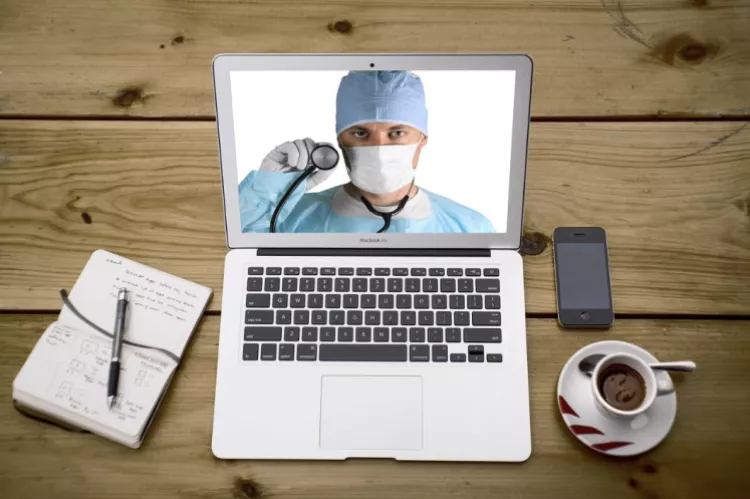
Telehealth is becoming the new norm for all kinds of healthcare needs. It provides convenience, peace of mind, and independence for people of different backgrounds and diverse living situations. The benefits of telehealth are especially important for people who work in unusual (and often dangerous) professions, such as diving.
Professional divers do exciting and important work, ranging from teaching people how to dive to performing rescue missions and maintaining underwater equipment. Their health and safety are critical to ensuring that they can continue in this demanding profession. Here’s how telehealth is helping.
The Health Challenges Faced by Professional Divers
Divers who make a living underwater have mentally and physically demanding jobs. They must be strong swimmers who are able to navigate different hazards they might face underwater. They also have to be able to keep a cool head under pressure in case they get into trouble or encounter dangerous aquatic life and scary situations.
The risks of diving are well-known. Equipment failure and improper technique can lead to a variety of physical health issues. Many divers, even if they don’t ever experience decompression sickness or other diving-specific injuries, can develop ear and sinus issues due to increased pressure below the surface.
There can also be mental health consequences of being a professional diver. Getting lost underwater, finding themselves in enclosed spaces, or performing search and rescue missions can be very mentally taxing for divers. Over time, these stressors can accumulate and affect well-being.
Professional Divers’ Limited Access to Healthcare
In many situations, a professional diver won’t have easy access to high-quality medical facilities. Divers involved in research missions or marine life photography, for instance, might be hundreds of miles from the nearest medical facility.
Delays in medical attention can lead to long-term problems for divers or even result in their deaths. Although there are inherent risks involved with diving in these remote areas, proper preparation and the ability to contact a medical professional remotely can be lifesaving under certain circumstances.
The Benefits of Telehealth
Telehealth is healthcare that’s delivered remotely. That might mean video chat, telephone, email, or even text message.
The benefits of telehealth are significant. People don’t have to travel to see a doctor in order to get healthcare advice, and they can skip visits that don’t require a physical exam. Since the COVID-19 pandemic, the quality and availability of telehealth has increased significantly.
For divers, this accessibility to medical experts can significantly cut down on the risks associated with their profession. It can also help them maintain better general health and well-being both underwater and on land.
Remote Consultations and Diagnoses for Divers Via Telehealth
Professional divers have unique healthcare concerns that not all doctors are experienced in addressing. Telehealth can give divers improved access to these professionals by allowing them to discuss their healthcare needs with diving medicine experts anywhere in the world. This is extremely helpful for monitoring ongoing health concerns and providing preliminary diagnoses.
Being able to interface with a medical professional via telehealth can make a huge difference for divers in remote areas. A doctor or nurse can provide them with instructions on what they should do and advise them on whether or not they need to get to a medical facility ASAP.
Although this kind of medical advice won’t help divers in critical condition, it can help in many situations to improve the patient’s ultimate outcome. Getting a diagnosis before the patient is transferred to a full medical facility can also help ensure that treatment is carried out immediately upon arrival.
Preventative Care and Mental Support for Divers
Because their job is physically and mentally taxing, divers need to pay special attention to preventative care and their mental health. Being able to remotely discuss preventative care with a nurse or doctor in the field can help divers avoid some of the pitfalls that can occur in their line of work. Divers can also utilize wearables when underwater that monitor their vital signs and help detect potential problems.
Mental health support is something that can take place without the need to see a provider in person. Telehealth can effectively ensure that divers are able to access the care they need to stay mentally strong and able to cope with the pressures of diving. Coping with the stress, anxiety, and psychological challenges of diving is something that people shouldn’t have to do alone.
Making Telehealth Accessible for Professional Divers
Although telehealth is an important resource for professional divers, the main challenge is infrastructure and accessibility. Developing robust communication systems that work in remote areas is difficult but necessary for divers’ safety. Divers also need to be taught how to leverage telehealth effectively and use it proactively.
Diving might be a risky job, but that’s all the more reason to ensure that telehealth is accessible for those who follow this career path. For the important work they do in helping us maintain infrastructure and understand our world, they deserve the best medical support possible—and that starts with telehealth.





















